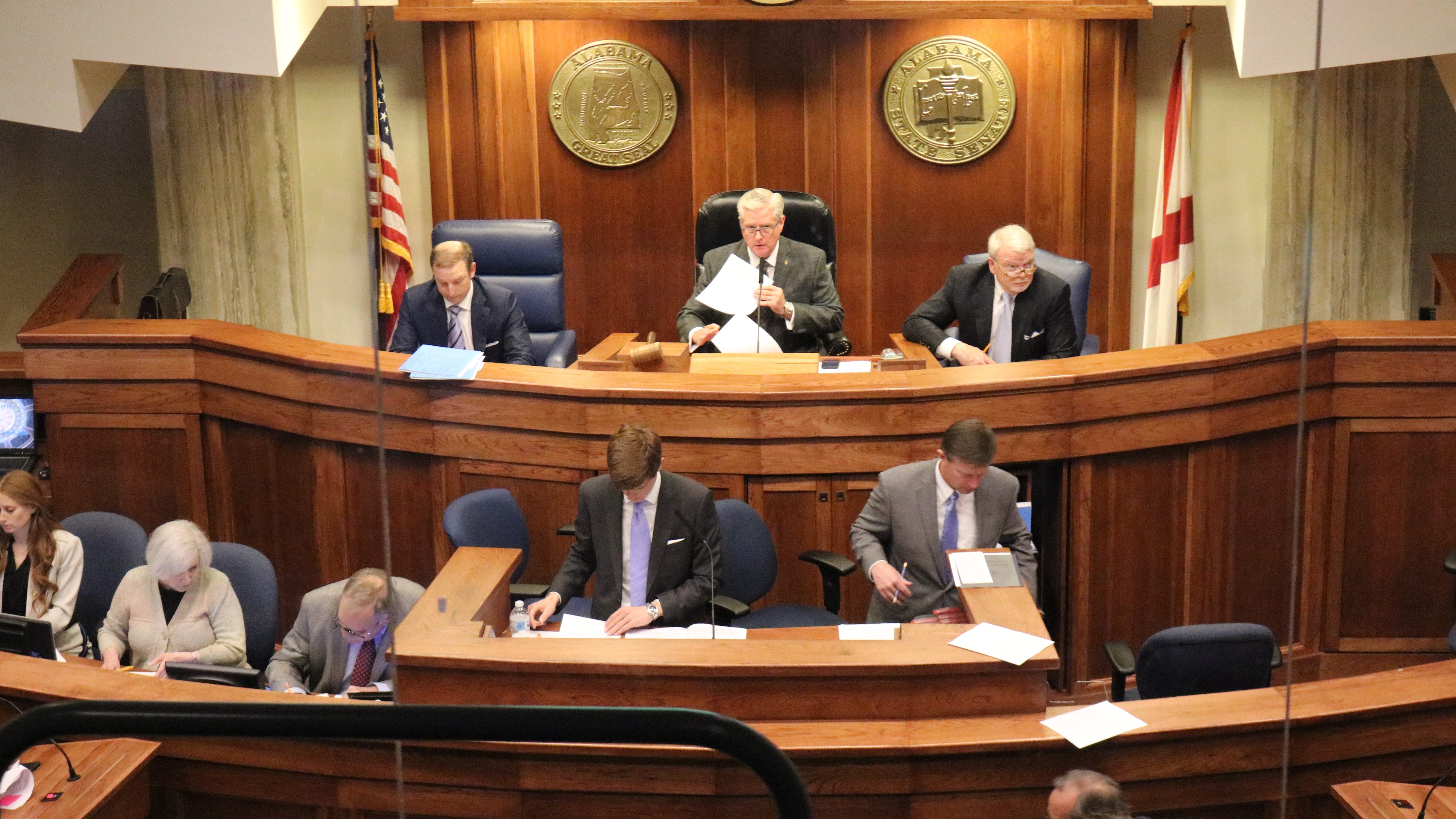The Alabama Legislature on Monday concluded its 30th and final legislative day of the year. Senate Republican leaders Greg Reed and Clay Scofield spoke with reporters after the conclusion of the session at midnight. State Senate President Pro Tem Greg Reed, R-Jasper, said: “I feel good about the work that we have done here.”
“I feel great about the work that we have done on this last day,” Reed continued. “We dealt with 46 bills, including a lot of legislation on things we were working on. … I am very pleased that we had very few issues with COVID in members and staff,” Reed said of working through the pandemic,
“There was potential for a lot of divide,” Reed said. “There are always challenges. We did not always agree, but we had a very good session.”
“It will be a decision for the Governor,” Reed said of whether or not there will be a special session to address prisons or gambling. “There will be a special session to address legislative redistricting.”
Reed said that the Senate is looking “very seriously” at doing a prison bond issue if the governor’s plan for a private lease build agreement falls through.
Reed was asked about two members who are battling very serious health situations and effectively missed this legislative session: Sens. Priscilla Dunn, D-Bessemer, and Malika Sanders-Fortier, D-Selma.
“I don’t have any updates,” Reed answered. “Both ladies are fine members of the Alabama Senate. Their health challenges have been well documented.”
Reed succeeded Sen. Del Marsh, R-Anniston, as pro tem early in this session.
“I learned quite a bit from Senator Marsh,” Reed said. “I have tried to run a very efficient and effective floor so that members id not think that we were wasting time.”
“Democrats and Republicans working collaboratively was very important to me,” Reed said. “The most important thing in this building is the relationships that members share.”
“If we have more information shared on the floor of the Senate the better product we have,” Reed said of Senate dialogue.
Senate Majority Leader Clay Scofield, R-Guntersville, said that he was not surprised that gambling legislation did not pass this session. “Bills like that take time,” Scofield said. “These bills take years to get through.”
Medical marijuana did pass this session.
“There was a lot of conversation on both sides of the aisle and bicamerally,” Scofield said. He credited the bill’s sponsor, Sen. Tim Melson, a Republican, for the work that he did to get the legislation to pass.
Scofield credited the COVID-19 global pandemic and “people being at home” for the passage of the direct alcohol shipping bill this session.
Scofield said that the people of Alabama strongly support a lottery and legislators are going to have to go home and address their constituents about that.
“I think you have to explain to people why it doesn’t pass,” Scofield said. “Next session we still have time to pass a lottery to get it on the 2022 election ballot. Casinos are a possibility.”
Scofield was asked if it would be easier to pass a lottery or a comprehensive gambling bill.
“I think it is tougher, but I don’t think it is impossible,” Scofield said. “I would say it is not going to be easy to pass a clean lottery in the Senate.”
Scofield was asked if he thought there would be a special session this summer.
“It depends on what happens with the prisons,” Scofield said. “The Senate stands ready to help the governor if that plan falls through.”
“I think the Republicans in the Senate want to solve this,” Scofield said.
Scofield was asked if it would be easier to pass a bond issue to repair and rehab the prisons that we have rather than building three new megaprisons at a cost of $3 to $4 billion.
“You have to keep in mind that we are using cost savings to pay for the bonds out of DOC money,” Scofield said. “Whether you rehab prisons or build new prisons those numbers have to add up.”
One of the sticking points that derailed the negotiations on the casino gambling legislation was last-minute demands from House Democrats that Medicaid expansion be a condition of passing gambling legislation.
“I think the Senate Republicans would have a problem with that,” Scofield said. “If we expand it we would have to have a way to pay for it over the long term. The economy of the state today is not going to be the economy of the future.
“It would not be a viable option,” Scofield said of Medicaid expansion. “It would not have the support to pass (the Senate) from my caucus.”













































